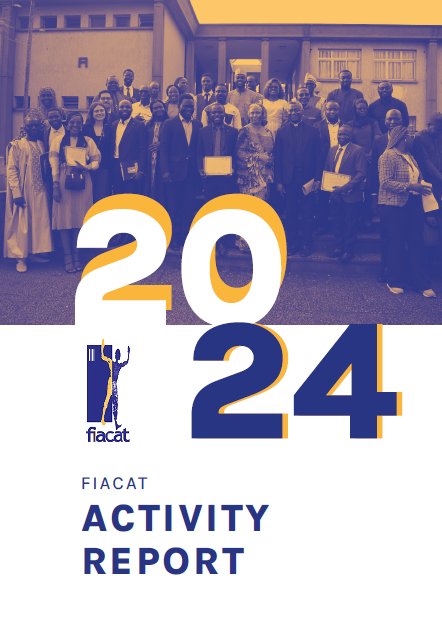African Commission on Human and Peoples' Rights
73rd Ordinary Session (October 20 to November 09, 2022)
***
Item 4 of the agenda:Human Rights Situation in Africa
Thank you, Honorable Chairperson,
It is my pleasure today to deliver a joint oral statement on behalf of FIACAT, the World Coalition Against the Death Penalty, Reprieve and Together Against the Death Penalty
In a span of just 6 months, the ongoing fight against the death penalty achieved another success on the African continent when the Central African Republic abolished and Equatorial Guinea announced the abolition the death penalty, in June and September 2022 respectively. This means that only a minority of the 55 states within the African continent remain retentionists. We call on all countries observing moratoriums to be followed by abolition in law.
In continuing the positive trend towards abolition, we congratulate the sincere steps being taken by the Liberian Senate for the abolition of the death penalty in considering a bill that would remove the death penalty from the penal code. The bill must still be voted on by the House of Representatives. Our organizations welcome the abolitionist process initiated in Ghana, a bill to remove the death penalty from the Criminal and Other Offences Act, and possibly from the Armed Forces Act, was pending. and other offences, and possibly also in the Armed Forces Act, was under consideration in Parliament. Additionally, we are pleased to see the efforts taking place in Zambia where, in May, President Hakainde Hichilema pledged to abolish the death penalty with support from parliament. And in Malawi, President Lazarus Chakwera commuted the death sentence of 22 inmates to life imprisonment.
Nevertheless, the fight for Africa becoming the next fully abolitionist continent is far from over. We call on Somalia, Botswana, South Sudan, and Egypt who have seen executions within the past year, to implement urgent moratoriums on all executions.
Honorable Chairperson,
On 10 October 2022, the World Day Against the Death Penalty was dedicated to reflecting on the relationship between the use of the death penalty and torture or other cruel, inhuman, and degrading treatment or punishment. The types of torture and other ill-treatment experienced during the long death penalty road are varied and numerous: physical or psychological torture has been applied in many cases during questioning to force confessions to capital crimes that continue to happen in many African nations; death row phenomenon contributes to the long-term psychological decline of a person’s health; harsh death row living conditions contribute to physical deterioration; mental anguish of anticipating execution; methods of execution that cause exceptional pain, and the suffering experienced by family members and those with a close relationship with the executed person.
It's also important to draw attention to the gender bias in the use of torture in the judicial process leading to the imposition of the death penalty. Among others, women are particularly vulnerable to ill-treatment, including physical, sexual and psychological torture, and are confronted with a denial of their gender specific needs which are not taken into account in death rows.
In a careful understanding of the application of capital punishment and Article 5 of the African Charter on Human and Peoples’ rights, which calls for an end to torture, cruel, inhuman or degrading punishment, one cannot have the death penalty without torturous implications.
Finally, our organizations welcome the African Commission's recent efforts to relaunch and support the process of adoption of the draft additional Protocol to the Charter on the Abolition of the Death Penalty in Africa and call on all States that have already committed themselves to this text to support its adoption process at the African Union
Thank you for your attention.




